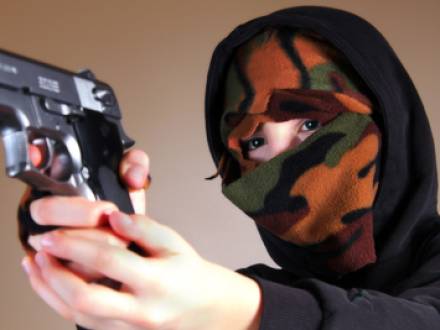Connecticut Juveniles, Guns, and the Transfer Decision
 The stakes for a juvenile can escalate quickly in Connecticut when he or she faces a firearm charge. What begins in juvenile court can shift into adult court under Connecticut General Statutes Section 46b-127. This can expose a juvenile to adult penalties, public records, and long-term consequences.
The stakes for a juvenile can escalate quickly in Connecticut when he or she faces a firearm charge. What begins in juvenile court can shift into adult court under Connecticut General Statutes Section 46b-127. This can expose a juvenile to adult penalties, public records, and long-term consequences.
Recent legal reforms and case decisions have given defense attorneys new tools to argue for retention in juvenile court, which offers rehabilitation rather than punishment, as well as treatment and confidentiality. While gun crimes are considered extremely serious, even for a juvenile, the goal is to keep the case in juvenile court.
Families facing the possibility of their child ending up in adult court must understand how firearm-related juvenile offenses are transferred to adult court, and when they can stay in juvenile court. A Stamford, Connecticut juvenile crimes lawyer will work hard to keep your child’s case in juvenile court, fighting for the best possible outcome.
What Makes Firearm Charges for Juveniles Unique in Connecticut?
While most juvenile cases in Connecticut are confidential and strictly focused on rehabilitation, firearm-related offenses trigger special transfer provisions that can move the case to adult court. When a juvenile is charged with a criminal offense involving a firearm, it may be moved to adult court through an automatic transfer or a discretionary transfer.
This decision is based on the juvenile’s age and the specific firearm offense alleged. If the juvenile is between the ages of 15 and 17 and charged with a Class A felony, arson, murder, or most Class B felonies, he or she will be automatically transferred to adult court. For other felonies, such as Class C, D, or an unclassified felony involving a firearm, the prosecutor can file a motion with the court for a discretionary transfer to adult court with the following provisions:
- The juvenile must be at least 14 at the time of the alleged offense.
- The juvenile court must have probable cause to believe the juvenile committed the offense.
- The best interests of the public must not be served by keeping the case in juvenile court.
After the motion is filed, the juvenile court will conduct a hearing to determine whether a transfer is appropriate, considering the juvenile’s age, the seriousness of the offense, the juvenile's prior criminal history, and any evidence of intellectual or mental health disabilities. Some firearm offenses are designated as "Serious Juvenile Offenses" (SJOs), which can impact the juvenile’s record and future firearm possession. These offenses include carrying a firearm without a permit, illegally selling or transferring a pistol or revolver, and assault with a firearm.
Why Juveniles Need an Attorney Who Will Fight to Keep the Case in Juvenile Court
Since 2023, prosecutors and judges have had more flexibility to retain firearm cases in juvenile court, provided the court believes the juvenile is not a threat to public safety. Juvenile defense attorneys can argue for retention based on the following:
- The juvenile’s age and maturity level
- The juvenile’s lack of a prior delinquency record
- The circumstances of the juvenile’s weapon offense, i.e., the weapon was not discharged, and there were no injuries.
- Expert testimony that shows the capacity for rehabilitation
Defense attorneys for juveniles facing firearm-related charges are increasingly presenting neuropsychological evaluations to show that the juvenile had experienced trauma, acted impulsively, or his or her brain was not developed enough to understand the serious nature of the gun crime. These reports are meant to persuade judges that retention in juvenile court rather than adult court is warranted, and that rehabilitation outweighs punishment. Judges will weigh the potential for rehabilitation against the safety of the public.
Contact a Fairfield County, CT Juvenile Crimes Lawyer
If your child has been charged with a Connecticut firearm-related offense, the differences between juvenile retention and adult transfer can shape his or her entire future. Juvenile cases move fast, and once transferred, they can alter your child’s entire future. It is important that you consult with a highly experienced Stamford, CT criminal defense attorney from Law Offices of Daniel P. Weiner to protect your child’s rights. Call 203-348-5846 to schedule your free consultation.







